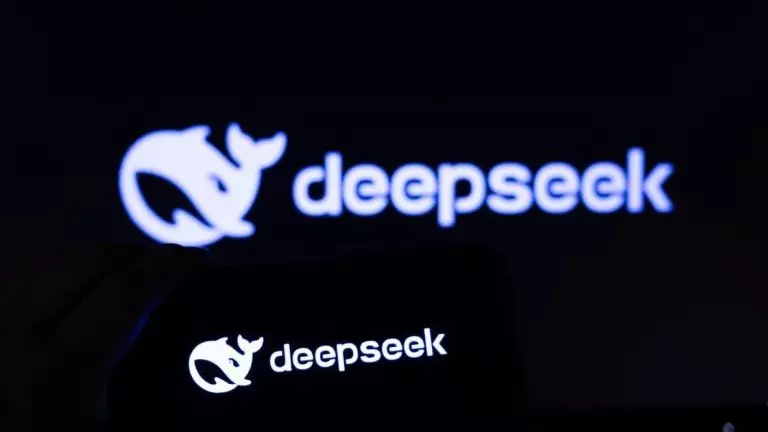During a private dinner back in 2009, Bill Gates gave one of his famous speeches where he uttered something very memorable: “Verbs are the future of search.” What Gates was getting at was not which sets of words people enter in the search box but more fundamentally what motivates people to go search for something.
To understand the value of search, one has to step back and appreciate what motivates people to search in the first place.

Why is Search Important to People?
While in the early days, people were searching to get a set of documents containing the target word they had typed, today it is not like that. In today’s context, the motives of searchers are to solve problems, to accomplish tasks, and actively to do something in this regard.
Whether it’s booking a flight, making a purchase, staying updated on the latest Snoop Dogg lyrics, or browsing cat photos, all of these activities involve taking specific actions. These actions, as Bill Gates referred to them, are akin to verbs. When a user initiates a search, they embark on a journey. Marketers often discuss and refer to this journey as “the consumer journey.”
This journey is the notion of the user’s path from the beginning of their activity to the end of that activity. Many of those journeys begin with a search. The consumer journey has become very popular in the last decade or so in the world of search.
Although the concept of the customer journey is some kind of funnel where people move from awareness to consideration to purchase out of date, we still use this model to illustrate the customer journey and also to make it easy to conduct persona research.
History of Search and the Consumer Journey
The new consumer journey is no longer a funnel; it’s more like a straw with twists and turns that represent the different channels, mediums, and devices with which users interact in today’s digital landscape.
To work in conjunction with this new model, search needed to evolve from being about the words on the page to understanding the intent of the user at every touchpoint.
You may also like: How Does SEO Work: Explained
Search has had a radical evolution beyond just being a keyword. Its purpose now lies in delivering the most relevant content to users at the precise moment in their journey when they need it to accomplish their tasks. For users, it revolves around the actions they want to take—verbs. For search marketers, the focus is on assisting users throughout their journey and, ideally, exerting a positive influence along the way.
Adhering to the analogy of the aggressive straw model, the consumer journey in today’s world no longer unfolds solely on a single device. Users may initiate a search on their mobile device, continue researching on a tablet or work laptop, and ultimately make a purchase on their desktop at home.
Search is no longer confined to computers or phones. Users can now conduct searches using an array of devices, including watches, smart glasses, Bluetooth speaker assistants, and even kitchen appliances.
In today’s interconnected landscape, even household appliances like refrigerators have their own Twitter accounts. Search marketers must be mindful of how these diverse devices interrelate and contribute to a user’s search experience.
While there may be debates about whether this has always been the case, in today’s constantly connected world, search engine optimization (SEO) has transformed into what can be termed as “real marketing.” The days of relying on hacks, tricks, and attempting to reverse-engineer algorithms are fading away.
Today’s SEO focuses on:
- Understanding personas.
- Data-driven insights.
- Content strategy.
- Technical problem-solving.
The belief of any Marketing Strategy
Search has a significant impact on three crucial aspects: attracting, engaging, and converting users. However, search primarily focuses on the initial phase: attracting.
You may also like: An Overview of the Evolution of Search Engine Optimization
The notion of “If you build it, they will come” may hold true for baseball fields, but it no longer applies to websites. Having an exceptional product alone is insufficient. It is essential to actively attract customers through various channels and platforms.
That’s why, regardless of any claims made by clients or design agencies, every webpage effectively functions as an SEO page. If a webpage plays a role in attracting visitors, engaging them, or converting them into customers, it should incorporate an essential SEO component.
Why Is SEO Important?
Users are important, and many of them start with a search, so search is important.
But why is SEO important? Isn’t SEO just a developer thing? I heard there was a plugin for it. Can’t Google and Microsoft Bing just figure out my website?
While we began this narrative with a quote from Bill Gates, it was actually Google, not Microsoft, that wholeheartedly embraced this philosophy.
Google has introduced various algorithm updates such as Hummingbird, Panda, Penguin, RankBrain, Mobilegeddon, Possum, Pigeon, entities, and AMP. These updates were aimed at adapting the search algorithm to shift from focusing solely on words to understanding user actions and assisting them in accomplishing their tasks. However, comprehending these updates is not a simple task.
Search engine optimization (SEO) has come a long way since the days of metadata. While there are numerous best practices that should ideally be covered by the development team or implemented through plugins or frameworks like Angular and React, they are often overlooked.
Today’s websites are more akin to applications rather than traditional websites, equipped with a plethora of sophisticated features that may not always align seamlessly with search engines (yes, Angular and React, we’re talking about you again).
Good SEO Today
A skilled SEO professional goes beyond content optimization and provides assistance in various areas:
- Navigating through multiple versions of the same page.
- Resolving technical issues that may hinder search engine visibility.
- Ensuring proper server settings for optimal performance.
- Integration with social media, content, creative elements, user experience, paid search, and analytics.
- Finding ways to enhance website speed.
A competent SEO practitioner not only understands the searcher and their tasks but also possesses insights into the competitive landscape. It’s not sufficient to comprehend the user’s needs alone. Search marketers must also be aware of the available alternatives in the market and identify ways to bridge the gap by offering a superior solution for the user’s requirements.
You may also like: Internet Marketing and Web Design Tips for 2023
We have progressed significantly from the era of focusing solely on keywords within website content. SEO professionals now undertake the role of multi-faceted marketers, collaborating with development teams, information architects, user experience specialists, content strategists, marketers, social media teams, and paid media teams. It’s a give-and-take process, aiming to create a solution that works effectively for both search engines and users.
There are numerous cautionary tales highlighting the potential consequences of seemingly simple actions such as website redesigns or implementing new content management systems. These changes can lead to a drop or disappearance of website traffic, leaving businesses in a state of urgency.
The truth is that most website modifications nowadays have an impact on SEO, and the only way to achieve positive results is by involving SEO from the outset and throughout the project. By doing so, businesses can anticipate favorable outcomes and mitigate potential issues.
Why Is Search Important?
The importance of search stems from the significance of users.
In the ever-evolving landscape of technology, SEO professionals will consistently encounter novel search methods, emerging devices for searching, and new types of searches such as voice search or even searches performed by household appliances like ovens. However, amidst these advancements, one fundamental aspect will remain unchanged: the reasons why people search. The essence of verbs in the search process will endure.
While it is conceivable that artificial intelligence may dominate the future or humans may transcend into a singularity by uploading their consciousness, until then, we will continue to face problems and strive to accomplish tasks. In these endeavors, some form of search will invariably play a role, serving as an essential component of our journey.
Would you like to read more about the Importance of Search and SEO-related articles? If so, we invite you to take a look at our other tech topics before you leave!
![]()











